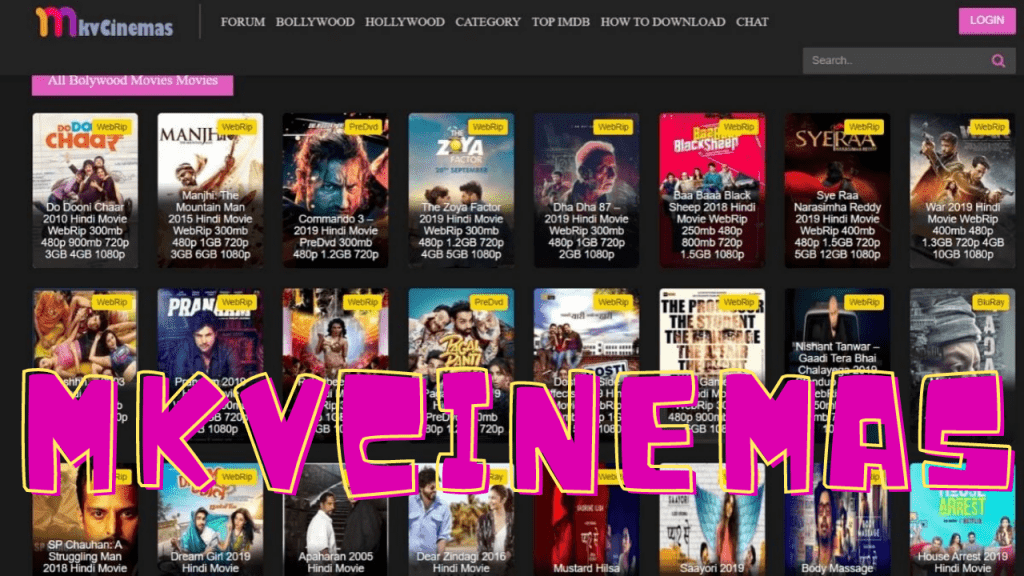In the ever-evolving landscape of digital media, MKV movies have emerged as a popular choice for movie enthusiasts worldwide. With their unique features and advantages, MKV (Matroska Video) files have captured the attention of users looking for high-quality video formats. This article delves into the intricacies of MKV movies, highlighting their benefits, compatibility, and how they stand out in a crowded marketplace of multimedia formats.
MKV movies are not just another file format; they represent a revolution in how we consume and enjoy digital content. This versatile format supports multiple video and audio codecs, subtitles, and chapters, making it a favorite among filmmakers and avid viewers alike. As we explore the world of MKV movies, we will uncover their unique characteristics, discuss their compatibility with various devices, and provide insights into how to best enjoy them.
Whether you are a casual viewer or a dedicated cinephile, understanding MKV movies is essential in today's digital age. With the rise of streaming services and the demand for high-definition content, MKV files have become increasingly relevant. Join us as we navigate through the essential aspects of MKV movies, offering guidance on how to handle and enjoy this fascinating format.
What Are MKV Movies?
MKV, or Matroska Video, is a multimedia container format that can hold an array of video, audio, subtitle tracks, and metadata in a single file. This flexibility allows MKV movies to deliver high-quality content without compromising on additional features. The format was developed in 2002 and has since become a widely accepted standard in the digital media landscape.
How Do MKV Movies Compare to Other Formats?
MKV movies are often compared to other popular file formats such as MP4, AVI, and MOV. Here are some key differences:
- Support for Multiple Codecs: Unlike many other formats, MKV can incorporate various codecs, allowing for superior video quality.
- Rich Metadata: MKV files can include additional information like cover art, descriptions, and multiple languages, enhancing user experience.
- Subtitles and Chapters: MKV allows for embedded subtitles and chapter markers, making it a versatile choice for viewers.
- Open Source: The MKV format is open-source, promoting a community-driven approach to development and usage.
Why Are MKV Movies So Popular?
The rising popularity of MKV movies can be attributed to several factors:
- High Quality: MKV files can store video at higher bitrates, ensuring excellent quality even at large resolutions.
- Flexibility: The ability to store multiple audio tracks and subtitles in various languages appeals to a global audience.
- Compatibility: Although not universally supported, many modern devices and media players can handle MKV files.
How to Play MKV Movies on Different Devices?
Playing MKV movies may vary depending on the device you are using. Here is a guide for various platforms:
Can You Watch MKV Movies on Windows?
Yes, you can watch MKV movies on Windows using various media players. Some popular options include:
- VLC Media Player: A free, open-source media player that supports MKV along with countless other formats.
- Media Player Classic: A lightweight alternative that also supports MKV playback.
- KMPlayer: A versatile player known for its wide range of supported formats.
How About on Mac?
For Mac users, there are several options available for playing MKV movies:
- VLC Media Player: Just like Windows, VLC is available for Mac and supports MKV playback.
- Elmedia Player: A popular choice among Mac users for viewing MKV files.
- QuickTime with Perian: Although not as straightforward, users can install the Perian plugin to enable MKV playback.
Are There Any Limitations to MKV Movies?
While MKV movies offer many advantages, there are some limitations to consider:
- Device Compatibility: Not all devices support MKV files, which can be a drawback for some users.
- File Size: MKV files can be larger than other formats due to their high-quality content, requiring more storage space.
- Streaming Issues: Streaming MKV files may lead to buffering on slower internet connections, affecting the viewing experience.
How Can You Convert MKV Movies to Other Formats?
Converting MKV movies to other formats can be beneficial for compatibility purposes. Here are some popular conversion tools:
- HandBrake: An open-source tool that allows users to convert MKV files into various formats.
- Any Video Converter: A user-friendly option that supports a wide range of file formats.
- Online Converter Websites: Websites like Zamzar or CloudConvert provide an easy way to convert MKV files without downloading software.
What Are the Best Practices for Storing MKV Movies?
To ensure the longevity and accessibility of your MKV movies, consider the following best practices:
- Backup Regularly: Always keep a backup of your MKV files on an external hard drive or cloud service.
- Organize Your Library: Create folders or use media management software to keep your MKV collection organized.
- Update Your Media Players: Ensure your media players are up-to-date to support the latest MKV features and codecs.
Conclusion: Why Choose MKV Movies?
In conclusion, MKV movies offer a versatile and high-quality option for digital media consumption. Their ability to store various codecs, subtitles, and rich metadata makes them an attractive choice for viewers seeking an enhanced experience. While there are some limitations to consider, the benefits of MKV files often outweigh the drawbacks, providing a rewarding viewing experience. With the information provided in this article, you are now equipped to navigate the world of MKV movies, ensuring you make the most of this remarkable format.


